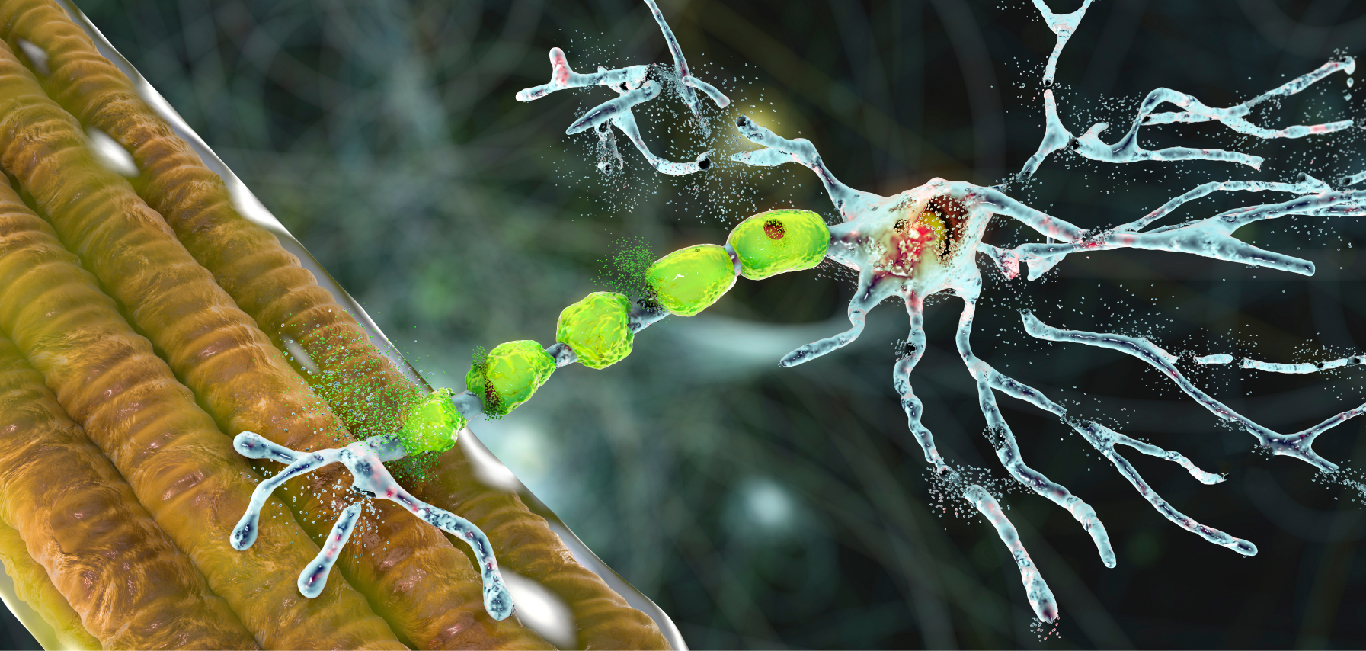
In a recent study published in the Journal of Neuroscience, researchers at Nagoya University in Japan found changes in a gene called SYNGAP1, which affects how nerve cells talk in a neurological disorder called amyotrophic lateral sclerosis (ALS). This gene affects synaptic dysfunction — the defects in neuron-to-neuron communication junctions — typically seen in the early stages of ALS.
An individual with ALS gradually loses neurons involved in movement — the cells responsible for moving, speaking, swallowing, and breathing — leading to muscle weakness.
This study advances the knowledge of understanding ALS, which currently has no known cure, and the gene SYNGAP1 could be a potential target for designing treatment for the condition.
The researchers used induced pluripotent stem cells (iPSCs) derived from human body cells to grow neurons responsible for movement for their study. iPSCs are made by reverse engineering adult cells like blood or skin cell back into stem cells.
iPSCs are a valuable tool as cellular models to study neurological disorders and identify potential therapeutic targets for conditions that still have no cure.
Another highlight of the study is that when the researchers cross-checked their experiments in mice, they found that the gene SYNGAP1 behaved differently in mice, indicating that iPSCs give a more accurate picture of the disorder and its molecular mechanisms.
“We believe that using human-derived samples is crucial so that the observations from these cells directly apply to people [with the condition]”, said Dr Satoshi Yokoi, lead author of the study, in a statement.
Previous studies have shown that the dysfunction of a protein called FUS (Fused-in sarcoma) is involved in ALS. Dr Yokoi and his colleagues at Nagoya University have been studying the mechanisms of FUS for many years and found that FUS impacts the gene SYNGAP1, which is essential to synapse formation or how neurons function together.
“Currently, no study has reported that SYNGAP1 is involved in the mechanism of ALS. However, given its close relationship with FUS, we wanted to investigate whether SYNGAP1 has anything to do with ALS,” said Dr Satoshi in the statement.
The researchers conducted observations on 807 people with ALS. First, they searched for gene variations and found seven of them had the mutated gene SYNGAP1. Then, once they identified the variant, they replicated it in human iPSC-derived motor neurons. The researchers observed several abnormal behaviours in these live stem cell-based neurons compared to normal motor neurons. Prominent among them was that the altered gene SYNGAP1 increasingly bound to another protein called HNRNPK than the usual FUS protein, inhibiting the junctions (synapses) between neurons. The result was dysfunctional neuron activity.
To confirm their results, the researchers blocked this binding – between SYNGAP1 and HNRNPK. Immediately, the synapse formation recovered, and the neurons could communicate together.
As ALS symptoms manifest differently in different people, the researchers hope this discovery could lead to more insights into the different types of ALS, particularly the ones where the SYNGAP1 variant is present.
“While this paper highlights one mechanism of ALS, it adds to the knowledge base of the disease and throws light on its different causes. We will continue research to find something that can apply to future ALS treatments,” said Dr Yokoi in the statement.

















